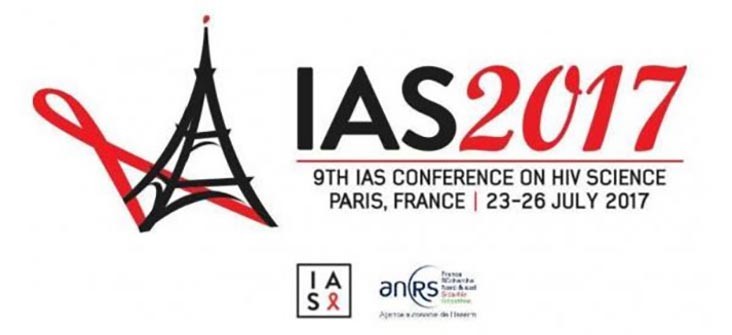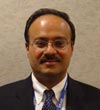- What We Do
- Agriculture and Food Security
- Democracy, Human Rights and Governance
- Economic Growth and Trade
- Education
- Ending Extreme Poverty
- Environment and Global Climate Change
- Gender Equality and Women's Empowerment
- Global Health
- Water and Sanitation
- Working in Crises and Conflict
- U.S. Global Development Lab


Linda-Gail Bekker, MBChB, DTMH, DCH, FCP(SA), PhD, is the International Scientific Chair of the International AIDS Society Conference 2017 (IAS 2017), the President of the International AIDS Society (IAS), and Professor and Deputy Director of the Desmond Tutu HIV Centre, Institute of Infectious Disease and Molecular Medicine, University of Cape Town, South Africa.

Benny Kottiri, PhD, is the Research Division Chief in the Office of HIV/AIDS at the U.S. Agency for International Development (USAID).
Recent Blog Posts
- 'But what if it falls out?' Using Human-Centered Design to Answer Questions about the Dapivirine Ring
Elizabeth Russell and Emily Harris - July 11, 2017 - HIV Vaccine Awareness Day: Renewed Hope and Determination
Margaret McCluskey and Giacomo Gorini - May 18, 2017
As we lead up to IAS 2017, the premier international HIV/AIDS scientific conference, Dr. Bekker shares some valuable perspectives with USAID HIV/AIDS Research Division Chief, Dr. Benny Kottiri.
We have collaborated with you frequently, and you are so well known to those of us at USAID and beyond, but tell us something about Linda-Gail Bekker that would surprise us.
I have a 15-year-old son, Oliver, whom I love to surf with in the cold Cape Town waters. I live by the adage "if you can think it, you can do it!"
Now that late-breaker abstracts are in, can you give us a sneak peek at what we can expect to see? What are you most excited about?
There are some very exciting late-breakers being presented at the conference this year. We have presentations covering a wide range of topics around new treatment and prevention strategies, including pre-exposure prophylaxis (PrEP), HIV among youth, co-morbidities, immunotherapies, antiretrovirals (ARVs) and new incidence data. In particular, we are highlighting several promising new treatment strategies, including new Phase 3 clinical trial results examining the effectiveness of a simpler treatment for HIV-related meningitis, investigation results on a two-drug, long-acting injectable form of HIV treatment, and an assessment of the nationwide impact of expanded HIV testing and treatment in a country with one of the world's worst HIV epidemics. We will also be discussing new enhancements in HIV prevention, including a multi-country study assessing treatment as prevention in more than 17,000 acts of condomless anal sex among gay, male HIV-serodiscordant couples.
Let's talk about PrEP. What have been some of the challenges to rolling out PrEP?
PrEP is an amazing tool for HIV prevention, but challenges remain regarding how to ensure access to those who need it most. Aside from various cost barriers, lack of awareness has been a big factor affecting PrEP rollout, often among both patients and their physicians. To compound that, some populations are less likely to be educated about PrEP and are, therefore, less likely to bring it up during routine visits. It's further affected by socioeconomic factors that influence healthcare access and availability.
The IAS meeting is essential for HIV researchers, like me, to hear about key scientific developments. What are some of the major trends being discussed this year?
One trend that continues to emerge is the importance of scaling up HIV prevention efforts, which includes identifying an effective vaccine. Vaccination is a hallmark of many disease prevention efforts and would bring us significantly closer to eventual elimination. I am currently co-leading a vaccine efficacy trial based in South Africa, called HVTN 702, which we hope will lead to a 50 percent reduction in HIV infection in 3 years. The trial involves more than 5,000 participants at 15 sites across the country and is supported by a partnership between vaccine developers, funders and the South African Medical Research Council; there are a lot of players involved. Conducting the trial in South Africa will be important in determining if the vaccine can be effective in one of the world's toughest regions when it comes to HIV transmission. It is extremely important for the research community to continue to promote efforts around vaccine development and to demonstrate the immense progress that has been made thus far, so we are excited to be discussing similar trials at this year's conference.
The global HIV response has set ambitious targets to diagnose, treat and achieve viral suppression in people living with HIV. What are some practical ways that program implementers can transform these targets into reality?
In the era of "treat all," the implementation of differentiated care models across the HIV cascade will be critical to achieving the 90-90-90 targets. Differentiated care, or differentiated service delivery, provides a framework for innovating HIV service delivery. By adopting a client-centered approach that simplifies and adapts HIV services across the cascade, the needs of people living with HIV are better served, and unnecessary burdens on the health system are reduced.
Differentiated care also offers significant opportunities to improve the quality of services for specific populations. The IAS is committed to priority populations, including youth and key populations, and addressing issues facing these populations will be critical to achieving epidemic control.
To help support the implementation of differentiated models of care, the IAS Differentiated Care initiative is launching a Decision Framework for family populations (children, adolescents and pregnant and breastfeeding women) at IAS 2017. Looking ahead, the IAS will continue to advocate for tailored service delivery models for key populations.
What advice do you have for young investigators who are interested in dedicating their lives to HIV research?
From my own experience, I can tell you how rewarding it has been to be engaged in HIV research. I am constantly amazed to see how much progress we have made but am also aware of how much still needs to be done until we reach the 90-90-90 targets globally. Creating more career path opportunities for young investigators is now key to building the next generation of HIV researchers and advocates.
Today, there are increasingly more opportunities for early-stage investigators to become involved in HIV research. My main advice for young researchers is to take advantage of these various opportunities, be it research fellowships, mentoring programmes or scholarships to attend important international meetings.
The IAS, for example, is offering scholarships and Educational Fund grants to attend its conferences. It also provides fellowships and grants, such as the Collaborative Initiative for Paediatric HIV Education and Research (CIPHER) Programme Grants that support early-stage investigators to address research gaps in paediatric HIV.
Paris is a beautiful city, and it's the fourth time the city is hosting an international HIV conference of this calibre, but some of us will not be able to attend in person. What suggestions do you have for those of us who want to stay engaged virtually?
We are doing a number of digital activities to ensure the conference is as accessible as possible! There will be a livestream available of the opening and closing sessions, as well as all of the plenaries and press conferences.
Also, all recorded sessions will also be available through the online conference programme within 2 days of the original presentation, and our YouTube channel will feature conference highlights and interviews with prominent speakers and delegates.
Finally, I encourage everyone to follow our Facebook and Twitter channels for IAS 2017 updates throughout the conference. This includes IAS 2017 Access – the Facebook live series of real-time conversations with speakers from the conference, which offers viewers a chance to ask questions directly.







Add new comment